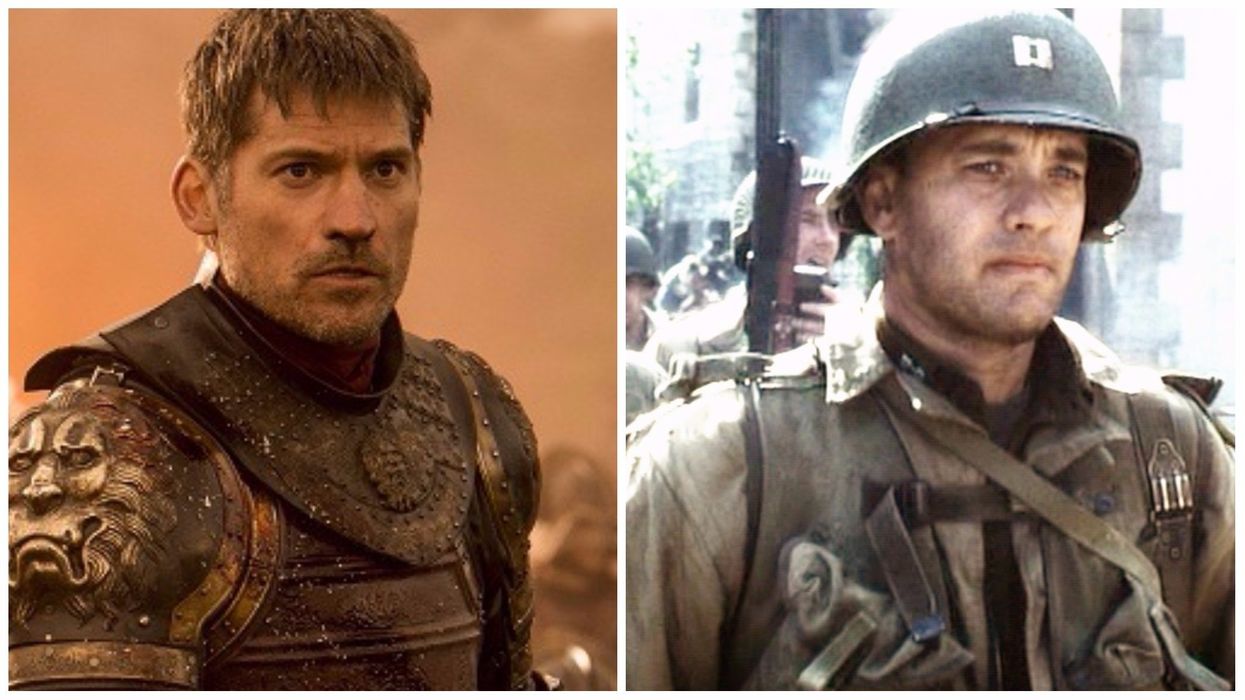How Many Movies Did 'Game of Thrones' Rip Off in its Most Epic Battle Yet?
Here’s a drinking game that Tyrion Lannister could get behind.

[Caution: Spoilers for Game of Thrones Season 7 Episode 4 below.]
As one of our top in-house, self-diagnosed Game of Thrones addicts, I have to admit that I had been a little disappointed by the pace of Season 7. For the first time, I found my mind wandering during heavily expository episodes. That is, until…the battle. Showrunners call it "The Loot Train Battle," but that doesn’t nearly describe just how extraordinary it was.
We’ve already covered how the incredible battle was created, but just why was it so darned satisfying?
One of our favorite video essayists, Nerdwriter, makes a strong case that it’s because almost every scene within the battle would have been comfortingly familiar to any respectable geek. In his latest work, Nerdwriter lives up to his name by proving with cinematic evidence that almost every scene within this battle was plucked from another movie—and some of the sources may surprise you.
Of course, other fantasy works are directly referenced, from The Hobbit to Harry Potter. For the early part of the scene when the Dothraki horde approaches the Lannister Army, Nerdwriter makes reference to Lord of the Rings: Return of the King, reminding us that “The Orcs, like the Lannisters, have to reform ranks at a moment’s notice to face an enemy that’s just about to appear over the ridge.”
There are also obvious references to war movies like Saving Private Ryan where historic battles have been recreated, but even these come into play in unexpected ways. For example, Nerdwriter makes a clear link between the helicopter attacks in Apocalypse Now and the aerial devastation wrought by Dany and Drogon. Other scenes—and even the dramatic landscape—are lifted right out of old American Westerns, like Stagecoach.

Nerdwriter isn’t knocking these rip-offs—er, homages. Rather, he argues, the production team “did a wonderful job of combining multiple sources to make a battle that’s tense, intelligible, and more than the sum of its parts.”
He even uses this “Frankenstein” of a battle to advise other filmmakers looking to depict war on screen: “War cinematography is like language. Most of the words have been used before, but that doesn't mean that something new can’t be written.”
How many of the references did you catch? Did he miss any? Are you drunk yet? Let us know in the comments.













